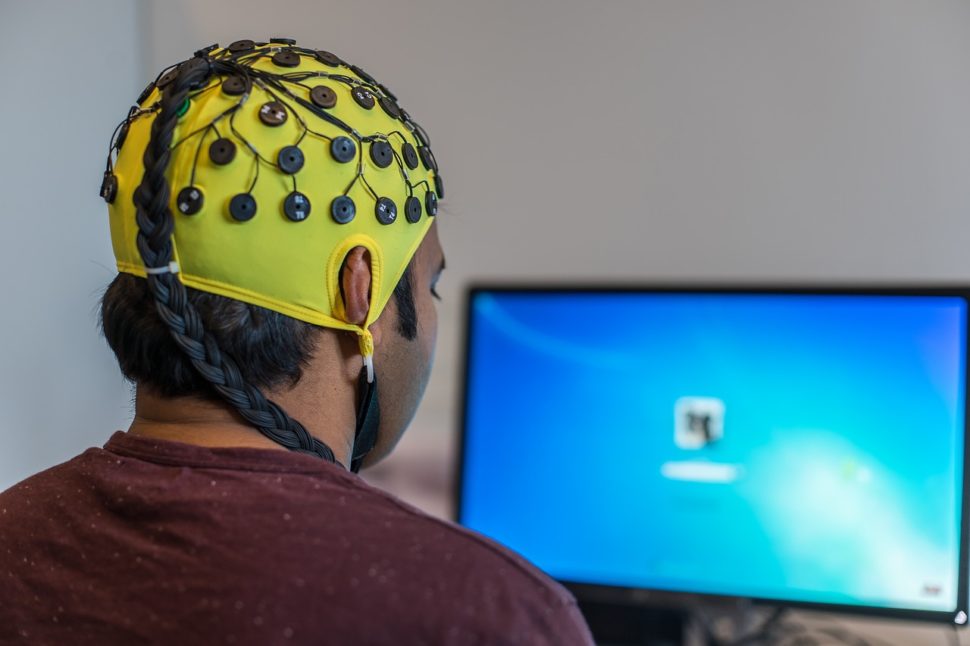According to reports from the state-run agency, Xinhua, China has just unveiled a groundbreaking brain-computer interface chip (BCI).
As can imagine, the chip provides a direct line of communication between the brain and the computer. Thanks to this communication medium, the seeming sci-fi act of mind reading could become a reality.
While researchers have made remarkable progress in BCI development in the past, the chip has never reached anything close to mainstream – until now.
With this unveiling, it appears the Chinese are about to bring Brain-Computer Interface chip to the masses finally.
The Brain-Computer Interface Chip is a Big Deal
BCI is a system which allows a person to control computers or other electronic devices using only their brain waves. In other words, you won’t need to move or give verbal instructions to perform tasks on a computer.
Sounds like sci-fi jargon, doesn’t it?
Yet, it has been in development for a while. Research into brain-computer interface began back in the 1970s at the University of California, Los Angeles. Although the study started under a grant from the National Science Foundation, it was soon followed by a contract from DARPA.
Before now, BCI researches have focused primarily on the development of neuroprosthetic applications such as restoring damaged sight, hearing, and movement.
The first big breakthrough came in the mid-1990s when researchers implanted the first neuroprosthetic devices in humans. It appears that we are about to witness another milestone.
The Brain Talker
Tianjin University in China collaborated with the state-owned China Electronics Corporation to develop the world’s first BCI chip. They’re calling it “Brain Talker.”
Here’s why this is a big deal.
The brain transmits and processes various signals. But, these signals are usually submerged in the background noise, says Ming Dong, the director of the Academy of Medical Engineering and Translational Medicine at Tianjin University.
The researchers designed Brain Talker specifically to decode brain wave information. The Brain-Computer Codec Chip (BC3), provides scientists with the ability to discriminate between minor neural electrical signals. It would also enable them to decode information efficiently.
According to Ming Dong, the BC3 will ultimately enhance the speed and accuracy of brain-computer interfaces. The researcher also hopes that the chip could bring BCIs out of the labs, into a mainstream technology.
In a statement to the press, the Tianjin University researcher, Ming Dong said:
Brain-Computer Interfaces hold a promising future. The Brain Talker chip advances BCI technology allowing it to become more portable, wearable, and accessible to the general public.
A data scientist at China Electronics Corporation, Cheng Longlong, believes that the chip could gain broader use in various fields. These include education, gaming, medical treatment, as well as home life.
Brain Talker will make its debut on Friday, during the ongoing World Intelligence Congress in northern China’s Tianjin Municipality.


















Comments (0)
Least Recent